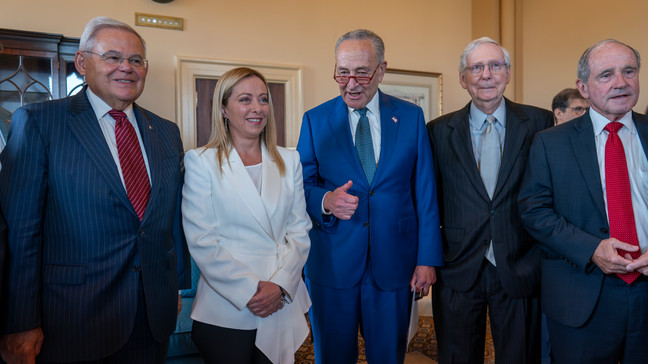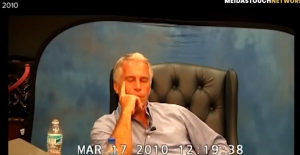In the ever-shifting landscape of American politics, few stories encapsulate the tension between power, privilege, and justice quite like the recent conclusion of a high-profile corruption case that has gripped the nation. For years, speculation, whispers, and mounting evidence pointed toward one of the most influential political figures in the United States Senate. With decades of legislative service and a role at the center of American foreign policy, this individual was once widely respected, a trusted authority on global affairs and diplomacy. But beneath the surface, federal investigators were unraveling a complex web of corruption that would eventually bring a storied political career to a dramatic end.
The case revolved around a sprawling bribery and influence-peddling scheme that stretched across continents, allegedly involving foreign governments, wealthy businessmen, and luxury gifts that no elected official could legitimately accept. The investigation gained national attention following a 2022 FBI raid in which agents uncovered hundreds of thousands of dollars in cash—some of it hidden in clothing pockets and closets—alongside gold bars worth over $150,000 and a luxury European vehicle parked in the driveway.
Prosecutors argued that these lavish gifts were not tokens of friendship or political donations, but bribes exchanged for favors—some of which involved attempts to interfere in federal criminal investigations, and others that allegedly benefited foreign powers. The arrangement, federal attorneys claimed, compromised the integrity of U.S. government operations and put national interests at risk.
As the case progressed, it became clear that the accused was deeply entangled in a series of transactions that raised serious ethical and legal concerns. The evidence, drawn from financial records, text messages, and witness testimony, portrayed a disturbing narrative: a once-powerful U.S. senator allegedly leveraging his influence to secure personal wealth and protect associates from legal consequences.
The severity of the charges was underscored by the number and nature of the criminal counts: 16 in total, including bribery, wire fraud, obstruction of justice, extortion, and even acting as an unregistered foreign agent. It was one of the most significant corruption cases in modern Senate history, involving not only financial misconduct but alleged betrayal of the senator’s oath to uphold the Constitution.
The trial, held in federal court, revealed further layers of the scandal. Among the most shocking revelations were claims that the official had used their spouse as an intermediary to facilitate the flow of money and gifts through shell companies. Prosecutors accused the couple of intentionally disguising the origin of the bribes to avoid detection. The foreign governments involved, including Egypt and Qatar, were allegedly granted favorable treatment or political protection in return for their support.
Despite appeals for leniency based on years of public service, the court delivered a stern sentence earlier this year, citing the “brazen” nature of the crimes and the long-running abuse of power. The defendant’s arguments for remaining out on bail during an appeal were denied by the Second U.S. Circuit Court of Appeals, marking the end of a long legal battle and the beginning of a new chapter—this time behind bars.
Only after the final verdict was upheld did former New Jersey Senator Bob Menendez, 71, report to Federal Correctional Institution Schuylkill in Pennsylvania on June 17, 2025, to begin serving an 11-year prison sentence. The facility, located in eastern Pennsylvania, includes a minimum-security satellite camp where Menendez is expected to be housed due to the nonviolent nature of his offenses.
Once the chair of the Senate Foreign Relations Committee and one of the most senior Latino figures in American politics, Menendez’s conviction is both a personal downfall and a cautionary tale about the dangers of unchecked power. Dubbed “Gold Bar Bob” by the media, his case has sparked renewed debates about transparency, ethics, and reform in Congress.
Adding further complexity to the scandal, Nadine Menendez, his wife, was also convicted earlier this year for her role in the bribery scheme. She is expected to begin serving her own sentence later this year, pending medical accommodations related to a reported cancer diagnosis.
The Menendez case now stands as one of the most high-profile corruption convictions in recent memory, highlighting both the resilience of the justice system and the enduring vulnerabilities in the institutions meant to serve the public.

Emily Johnson is a critically acclaimed essayist and novelist known for her thought-provoking works centered on feminism, women’s rights, and modern relationships. Born and raised in Portland, Oregon, Emily grew up with a deep love of books, often spending her afternoons at her local library. She went on to study literature and gender studies at UCLA, where she became deeply involved in activism and began publishing essays in campus journals. Her debut essay collection, Voices Unbound, struck a chord with readers nationwide for its fearless exploration of gender dynamics, identity, and the challenges faced by women in contemporary society. Emily later transitioned into fiction, writing novels that balance compelling storytelling with social commentary. Her protagonists are often strong, multidimensional women navigating love, ambition, and the struggles of everyday life, making her a favorite among readers who crave authentic, relatable narratives. Critics praise her ability to merge personal intimacy with universal themes. Off the page, Emily is an advocate for women in publishing, leading workshops that encourage young female writers to embrace their voices. She lives in Seattle with her partner and two rescue cats, where she continues to write, teach, and inspire a new generation of storytellers.









